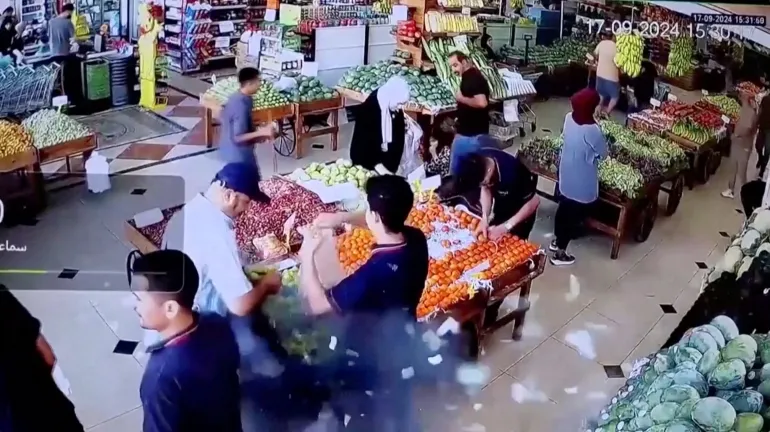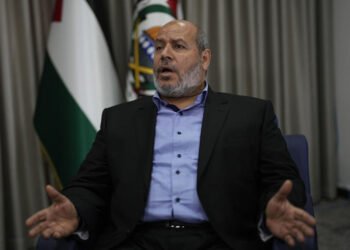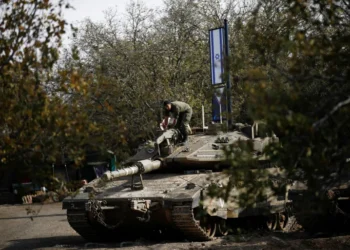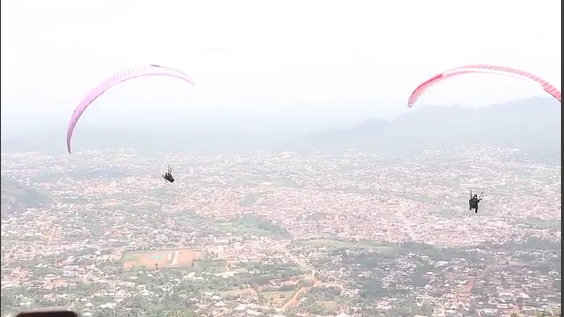In a resolute response to pager explosions that claimed at least nine lives and injured thousands in Lebanon, Hezbollah has promised to continue “its blessed operations to support Gaza, its people, and its resistance.”
The Lebanese armed group issued a defiant statement, saying that the deadly pager explosions only increase its determination to press on with its operations against Israel.
Israel declined to comment on the detonations, but the army urged its citizens to exercise caution.
“The Islamic Resistance in Lebanon extends its highest congratulations and warmest condolences to the families of the honourable martyrs who died yesterday, Tuesday, whether on the southern front in Blida and Majdal Silm, or the martyrs who died in the treacherous and widespread aggression through the bombing of communication devices.”
Hezbollah
Aside supporting Gaza, it will continue to defend Lebanon, its people, and its sovereignty.
The group vowed to retaliate against Israel.
“This path is continuous and separate from the difficult reckoning that the criminal enemy must await for its massacre on Tuesday that it committed against our people, our families, and our mujahideen in Lebanon. This is another reckoning that will come, God willing.”
Hezbollah
It added, “we are absolutely certain of God Almighty’s promise to the faithful, patient mujahideen of victory, God willing.”
This rhetoric, while steeped in the language of martyrdom and resistance, underscores a broader narrative that shows that attacks between Hezbollah and Israel are nowhere near an end.
Hezbollah’s pledge raises questions about the effectiveness of armed resistance as a means to achieve lasting peace and stability.
Hezbollah’s emphasis on resistance may overshadow the urgent need for dialogue and diplomacy.
A sustainable resolution requires engaging with diverse voices and fostering an environment where peace can take root.
Hezbollah’s resilience in the face of adversity is undeniable.
However, as the group rallies support for its operations, it is crucial to question whether this path truly leads to liberation or merely perpetuates a cycle of violence that hinders the quest for justice and peace.
Jordan has offered to provide any medical assistance needed to to “treat the thousands of Lebanese citizens who were injured in the mass bombing in Lebanon,” Jordan’s Ministry of Foreign Affairs said in a statement on X.
The statement said that Jordan’s caretaker Foreign Minister Ayman Safadi had called Lebanon’s Prime Minister Najib Mikati to offer Jordan’s support for “Lebanon’s security, sovereignty and stability”, after the attack in which hundreds of pagers exploded in Beirut and other parts of Lebanon.
Safadi also stressed the need to stop “dangerous escalation” in the region, by immediately ending “Israeli aggression on Gaza and the escalation in the West Bank”, the statement added.
Significant Amount Of Hezbollah’s Military Capability Lost
David Des Roches, a professor with the National Defense University in the US, called the deadly mass pager blasts “a significant coup” against Hezbollah.
He added, “Hezbollah loses a significant amount of its military capability because of the compromise of its communications.”
He noted that the pager blasts show that Hezbollah is “thoroughly riddled with Israeli sources.”
“The main thing here is [that] individual Hezbollah fighters will no longer trust Hezbollah equipment, so what you’ve got is a step back in communications. Hezbollah fights as a networked organisation and that requires pretty good real-time communications. They’re not going to have that any more.”
David Des Roches
Now would be a good time to attack Hezbollah with a large number of its members incapacitated and communications down.
“But so far, we haven’t seen an indication of that, so it could be more limited than a military operation would suggest,” he added.
READ ALSO: Ghana to Accelerate Renewable Energy Transition, Eyes 2060 Goal





















